Ecotourism in Thailand: Planting Seeds at Phu Ruea Ruean Mai Rice Farm
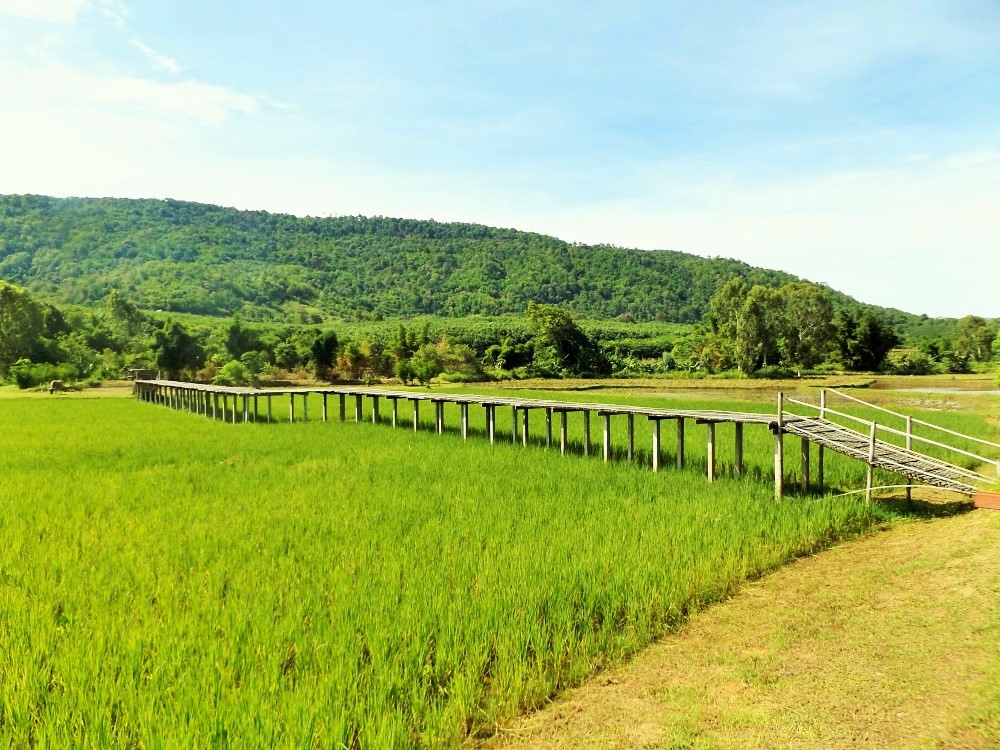
If you spend any time at all in Thailand, or any Asian country, you’ll immediately notice that rice is essential to the local diet. Many people, especially from the older generations and in the countryside, eat some form of rice three times a day. Having spent so much time in Asia, Charlie and I have also become a little bit addicted to rice, and quite happily eat it seven days a week, and sometimes for breakfast too!
So naturally I was keen to visit Phu Ruea Ruean Mai resort, an organic rice farm, and learn more about how some Thai people are trying their hand at ecotourism. The rice farm is run by Nu Dee, a young, well-educated woman from Bangkok, and her mother. Nu Dee is one of a small handful of people bucking the urban migration trend, and she argues that there’s more to life than sitting at a standstill in Bangkok’s notorious traffic jams.
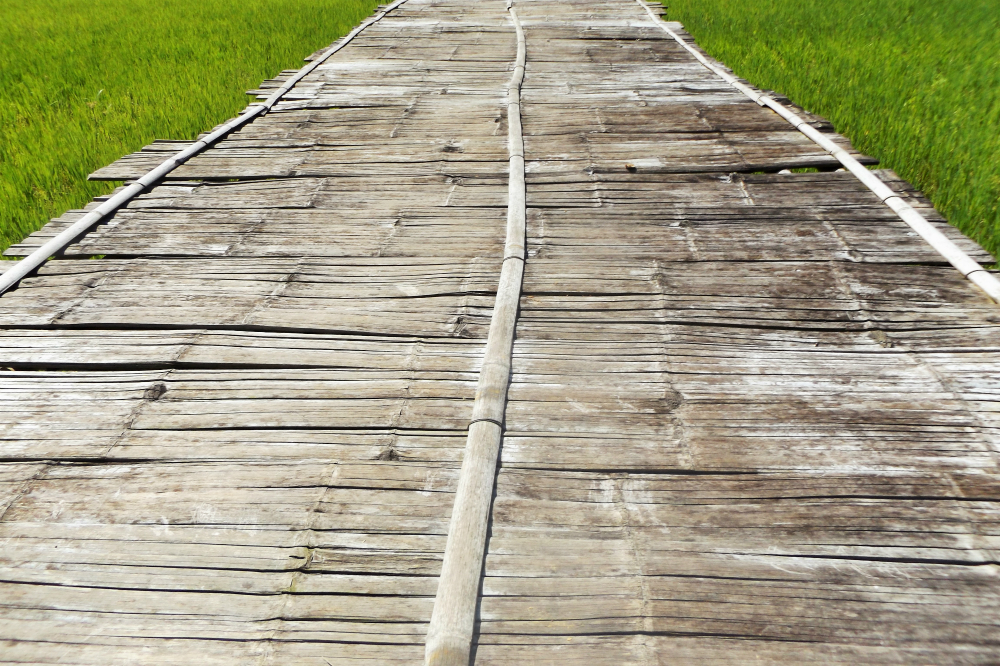
Looking out over the brilliant green rice paddies, it’s hard not to think that Nu Dee might have made the right decision. The Phu Ruea Ruean Mai rice farm is a flourishing demonstration of Thailand’s potential as an ecotourism destination.
What are the advantages of organic rice farming?
While I’m not all that knowledgeable when it comes to growing your own, I am interested in sustainable farming, by which I mean farming in a way that will not only feed us today but also feed us just as well in the future.
In Thailand’s Loei province, some farmers are starting to lose faith in chemical pesticides and fertilisers. While chemical fertilisers used to net the rice farmers excellent yields, over time these yields have diminished as the soil quality has degraded. Now the farmers are stuck paying a premium for their chemical fertilisers, but not necessarily producing any more rice than they would be doing through traditional methods.
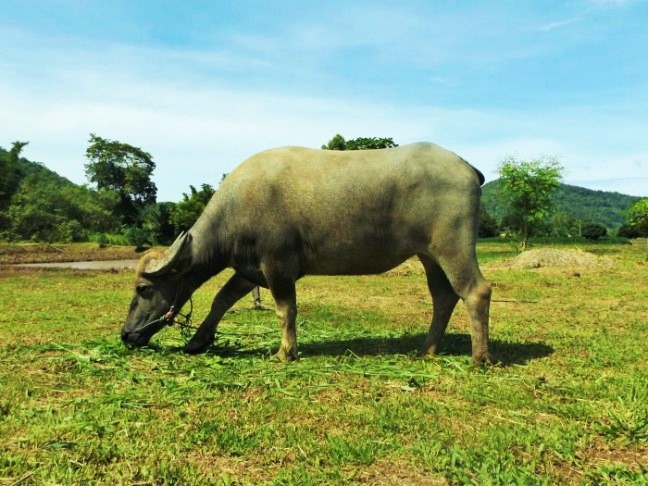
Nu Dee has been using more ingenious solutions to keeps the soil quality high at her farm. She introduced us to Chomchai, the water buffalo, who along with composting, produces enough fertiliser for 7 tonnes of organic rice.
When soil quality begins to deteriorate in one of the rice paddies – as it does inevitably over time – she floods it with freshwater. She then ‘farms’ freshwater fish in the flooded paddies. These fish are not only edible, but they also eat up the water snails that are a common pest in rice paddies. Fish excrement sinks to the bottom of the flooded paddy so that the soil is enriched by the time Nu Dee drains it again. Nu Dee supports the good work done by the fish using a natural pesticide made from tapioca, which grows abundantly in Thailand.
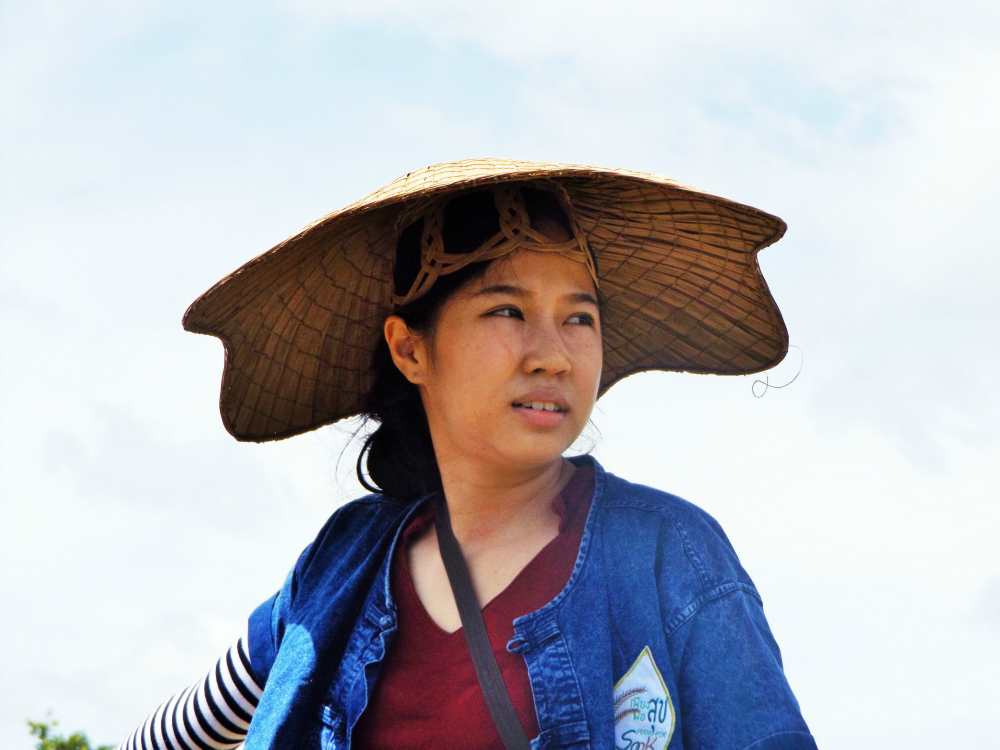
I have to say, hearing this story didn’t make me thrilled at the prospect of rolling up my trousers and wading through the mud planting rice seedlings. Planting rice the old-fashioned way, as Nu Dee does it, is hard work. First, rice seeds must be planted in special plastic seed sheets, which contain a number of semicircular holes. A few seeds and a little soil is put in each hole, and the baby rice plant grows for fourteen days out of water in the nurturing Thai sunshine.
Once the plants are ready, the farmer, or in this case me, wades deep into a rice paddy and throws the young plants, up into the air, so that the heavier part of the plant can sink deep into the mud, while the stalk stays above the water’s surface. The stalk gives the rice plants a nice ‘tail’ so that they fly beautifully when you throw them. Though I enjoyed taking part, I’m glad that we only spotted a snake swimming through one of the rice paddies after I had finished planting!
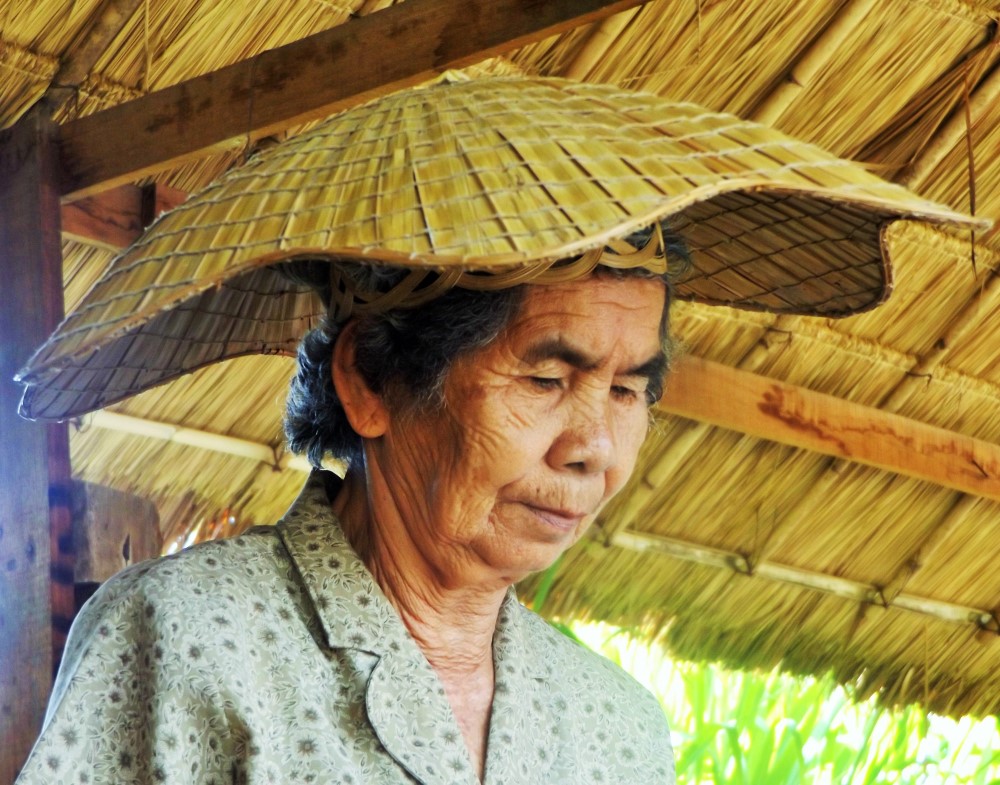
Try your hand at organic rice farming
You can stay at Phu Ruea Ruean Mai rice farm and experience organic rice farming for yourself. I ate at a number of different 5* restaurants while in Thailand, but none of them came close to the food served at Phu Ruea Ruean Mai for flavour, freshness or authenticity. You can also buy organic rice in several shapes and sizes for that health food lover in your life (i.e. Charlie, for me).
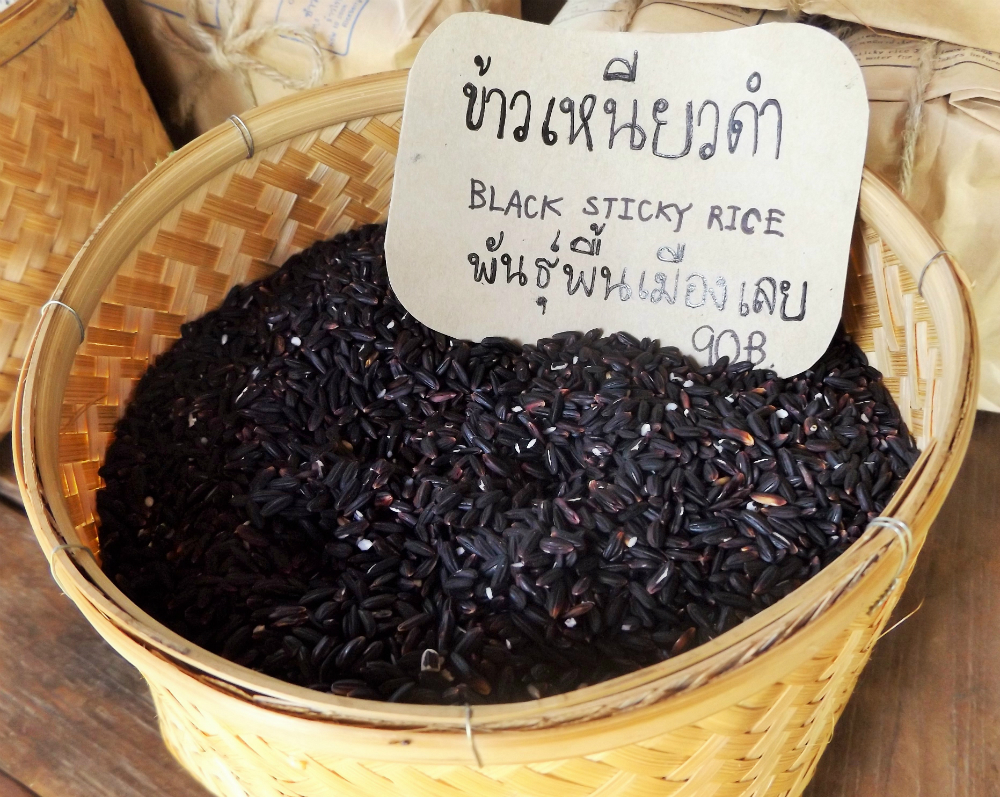
It’s true that ecotourism in Thailand is still relatively unheard of. But while it may not yet generally be as well-publicised as it is in other countries, people like Nu Dee are demonstrating that Thailand has enormous potential as an ecotourism destination. In order for ecotourism to flourish on a larger though, it is essential that tourists show an interest and support local and sustainable businesses.
To visit the rice farm, you can get in touch with via the Phu Ruea Ruean Mai website.
Address: 471 Moo 7, Tambon Nong-Bua, Amphoe Phu-Rua, Loei 42160, Thailand

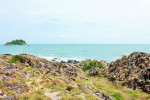
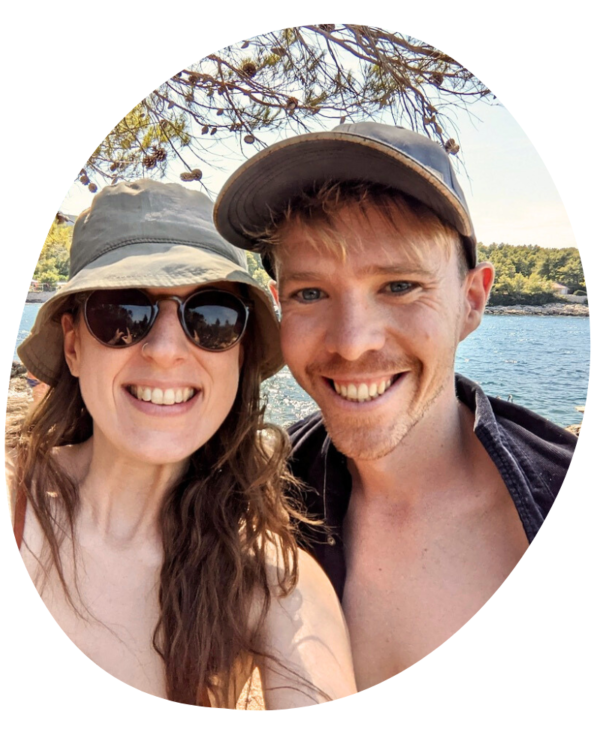


Katie Featherstone
This was a really interesting read Luke, thank-you! It’s good to hear how everything can slot together so well in sustainable farming methods. We need more! :)
Dale
What I would do for some of that black sticky rice to be in my hand right this second. I miss that place and the food so much. Maybe Christmas in Thailand wouldn’t be such a bad idea?
Charlie on Travel
Oh I think that at most meal times! When everyone told me that the food in Thailand was going to be incredible I wasn’t convinced, but damn they were so right. Christmas in Thailand sounds like a great idea to me.
Karianne
What an incredible place! We are already desperate to return to Thailand, as we only scraped the surface of what it has to offer – we will definitely have to put this into our plans.
I miss Thai food so much – when we returned from our time in Asia, we found days without rice very strange!
van zanten
hi, i really would like to stay at phu ruean mai resort but i can’t get any information except an thai website? can you give me, or is it too long ago, and address or telephone number and email?
greetings, Josephine
the netherlands
Charlie on Travel
Hi Van – The address is at the end of the blog post, but unfortunately I don’t have the telephone number or email. However, you an contact the Tourism Board of Thailand and they should be able to help you out. Here is their contact page: http://www.tatnews.org/contact-us
Here’s the address of the farm: 471 Moo 7, Tambon Nong-Bua, Amphoe Phu-Rua, Loei 42160, Thailand
van zanten
thank you very much for your quick reply.
greetings, Josephine